All products featured are independently chosen by us. However, SoundGuys may receive a commission on orders placed through its retail links. See our ethics statement.
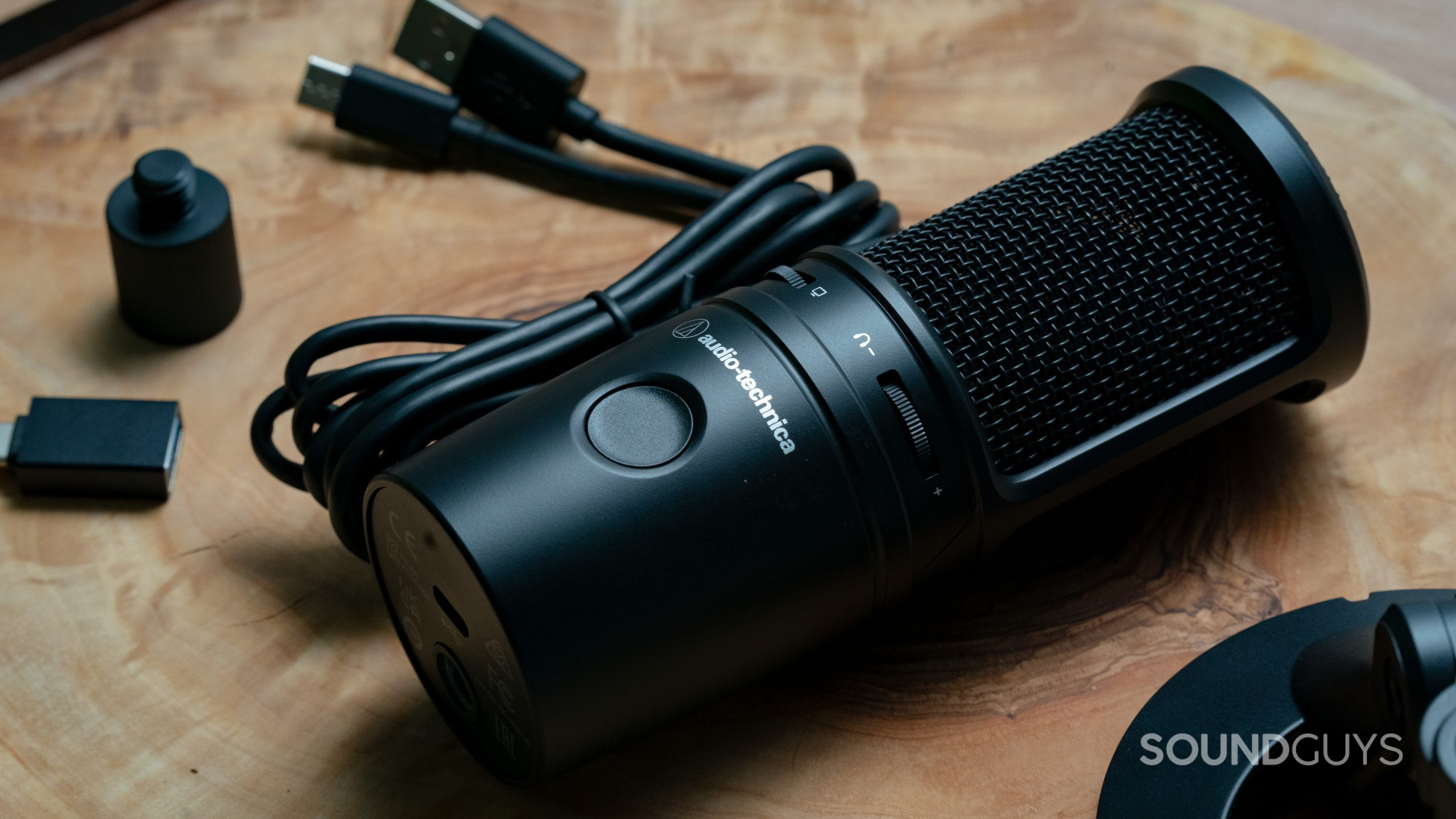
Audio-Technica AT2020USB-X review
Published onSeptember 15, 2022
Audio-Technica AT2020USB-X
The third child in the AT2020 family, the Audio-Technica AT2020USB-X is an improved version of the popular condenser microphone. With the addition of LED lighting, easy-to-use controls, and a USB-C connector, it’s clear that this microphone is designed to be easier to use than its siblings while still being a quality choice for podcasts and other professional voice work. There are a wide variety of options for microphones in this space, so how does it compare to the others on the market?
We spent almost a week with the AT2020USB-X and found out everything you need to know.
Editor’s note: this review was published on September 15, 2022, and is the first version of the article. Updates will follow as the market changes.
This microphone is intended for the prosumer, and anyone with an acoustically treated, quiet recording environment will benefit from its sensitivity and clarity. It’s also a viable option for anyone needing a USB microphone for calls and recording, although because it picks up some unwanted outside noise, it’s not ideal for this application.
What’s it like to use the Audio-Technica AT2020USB-X?
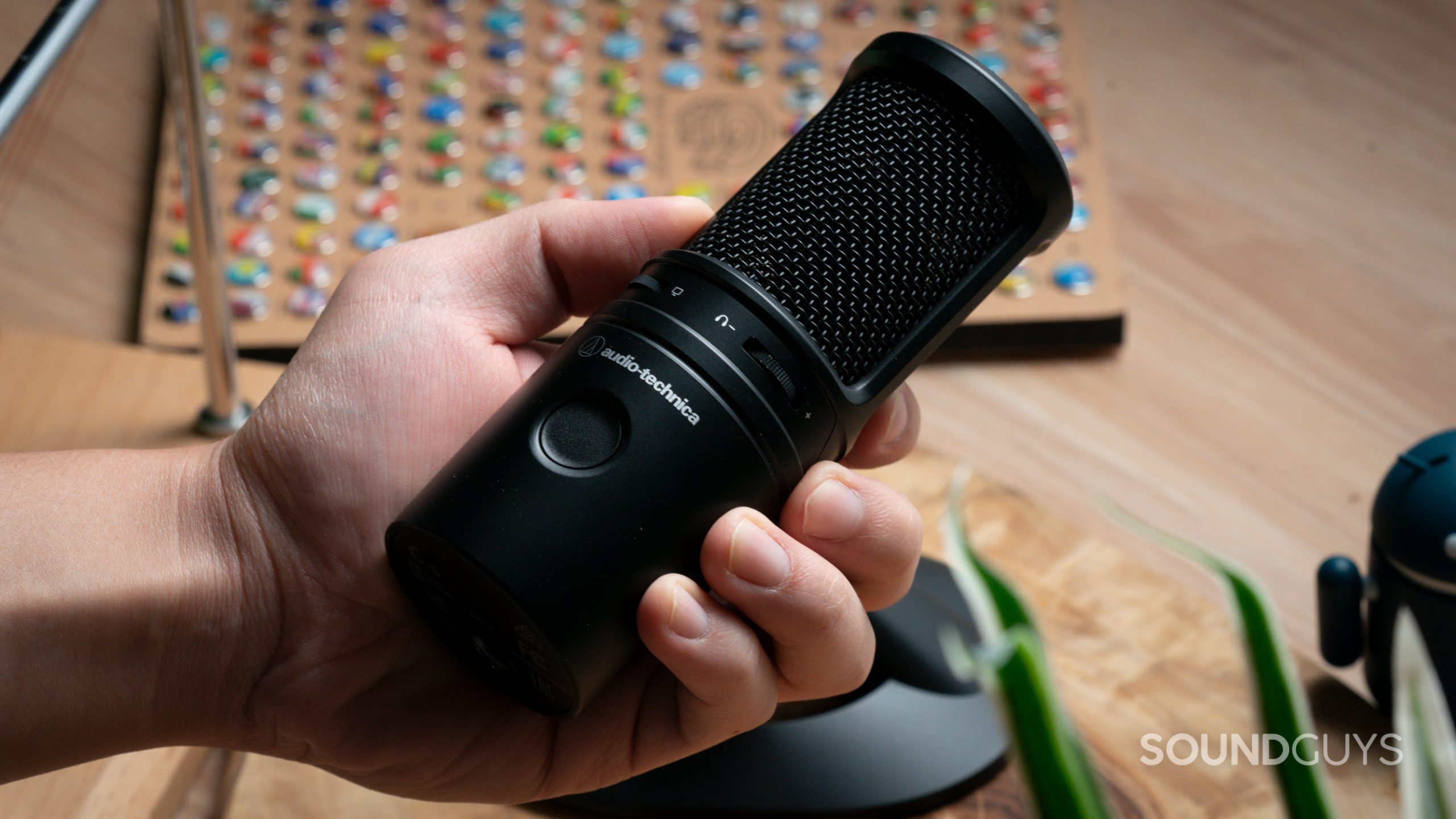
The AT2020USB-X is a condenser microphone with a cardioid pickup pattern. Unlike its XLR-based cousins, the AT2020USB doesn’t need an XLR-to-USB interface and only works with a USB connection. It feels sturdy, with a metal outer casing and inner grille to protect the delicate capsule from the outside world. Although it has some material inside, it’s only somewhat effective as a pop filter. The sound quality will benefit from a proper pop filter between the mic and the vocal talent.
It’s fairly easy to mount in a variety of ways thanks to its shape, as well as the threaded mounting hole on the bottom. It also includes a tabletop mount in the box, which makes it very easy to start using it without the need for any additional accessories. Compared to the original AT2020, it has a slightly flatter top grille.
How do you control the Audio-Technica AT2020USB-X?
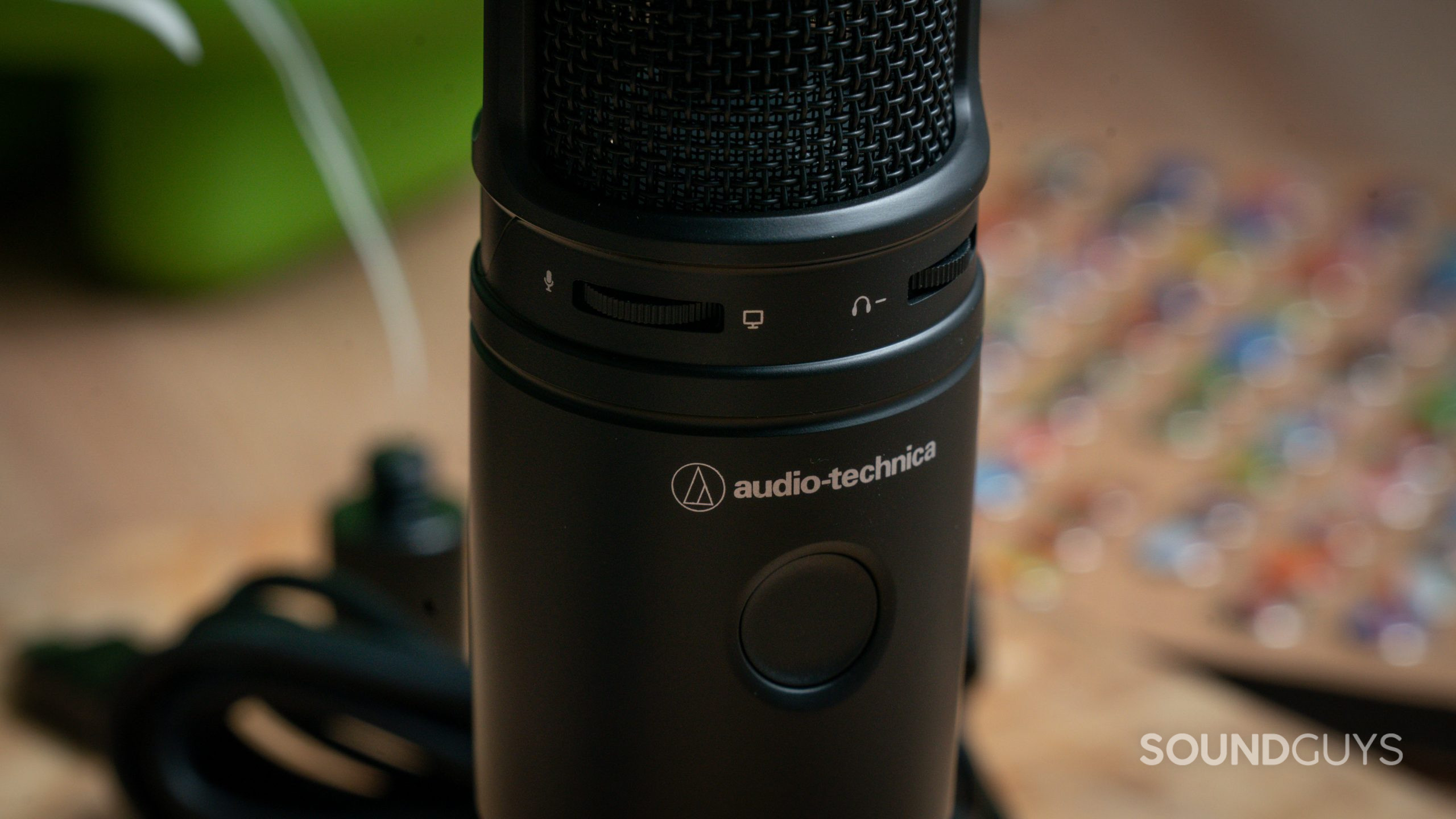
The AT2020USB-X includes a series of controls that are easy to access. The most prominent control is a mute button directly on the front of the microphone. Unusually, this one is capacitive only and doesn’t move, likely to cut down on noise during operation. The microphone features a blue light that will change to red whenever it’s muted.
Additionally, you can plug headphones in to the AT2020USB-X to route your computer’s audio output through the microphone. Two knobs allow you to adjust the sidetone (how much of yourself is mixed in to your headphones) and headphone volume when using this function. Be careful where you place your hand, it’s easy to accidentally hit the mute button when adjusting the volume and sidetone levels.
How does the AT2020USB-X connect?
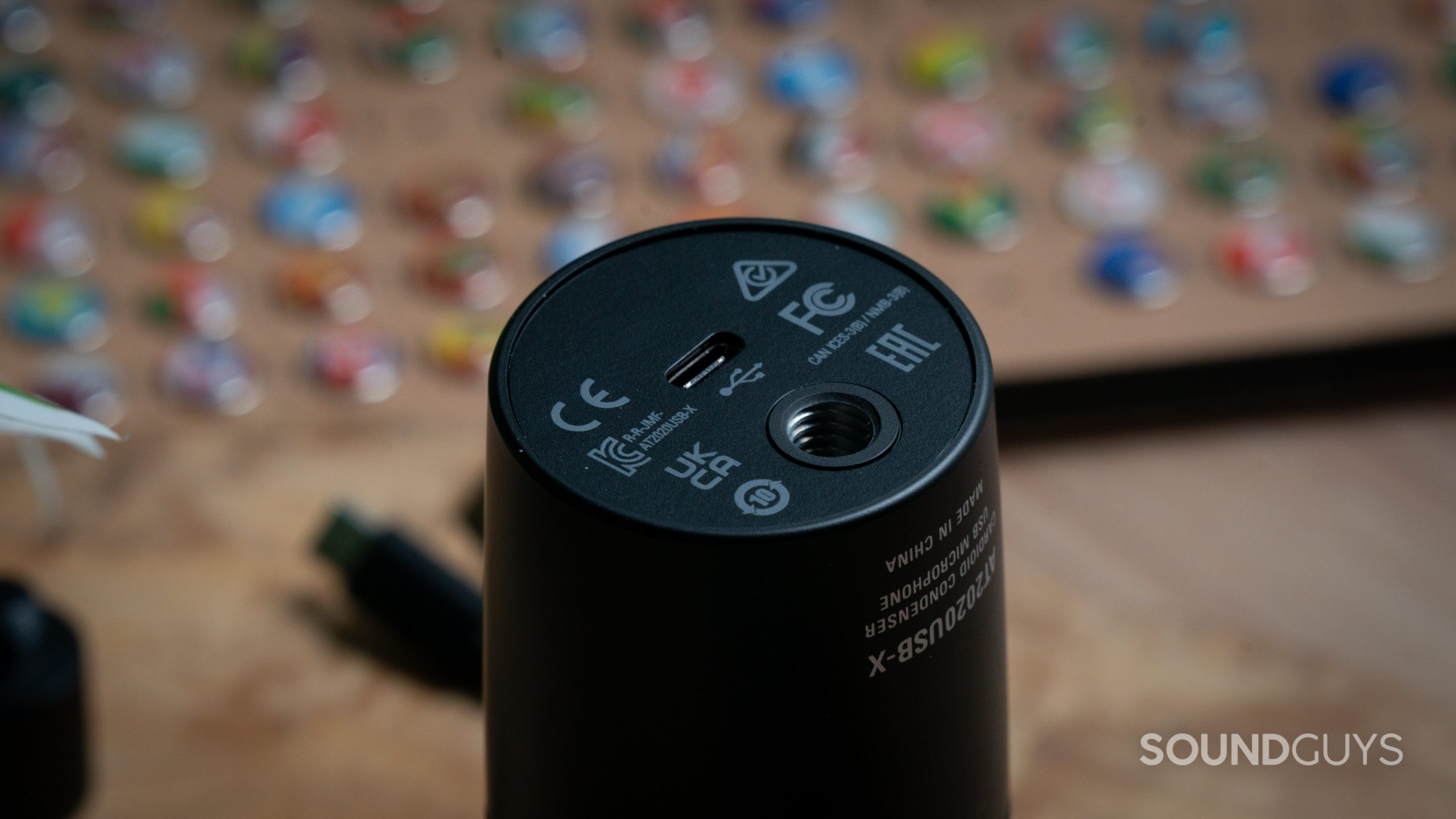
The AT2020USB-X connects very simply. Per its name, it only requires a simple USB cable to connect to any computer. The USB-C port is located on the bottom side of the microphone, immediately accessible as long as you’re using a microphone stand. Audio-Technica includes a 2-meter (6.6ft) USB-C to USB-A cable along with adapters to convert between USB-A and USB-C. Right next to the USB-C port is a threaded insert that can be used to attach the microphone to a 5/8-inch mount (also included is a 3/8-inch-to–5/8-inch-27 threaded adapter). The only issue with the included mount is that the USB-C cable can sometimes be difficult to thread through it as intended; the cable often slips free of the clips on the bottom.
No, the AT2020USB-X operates entirely off of the power provided by the USB connection. Its elder sibling, the original AT2020, does require phantom power as an XLR-based condenser microphone.
How does the Audio-Technica AT2020USB-X sound?
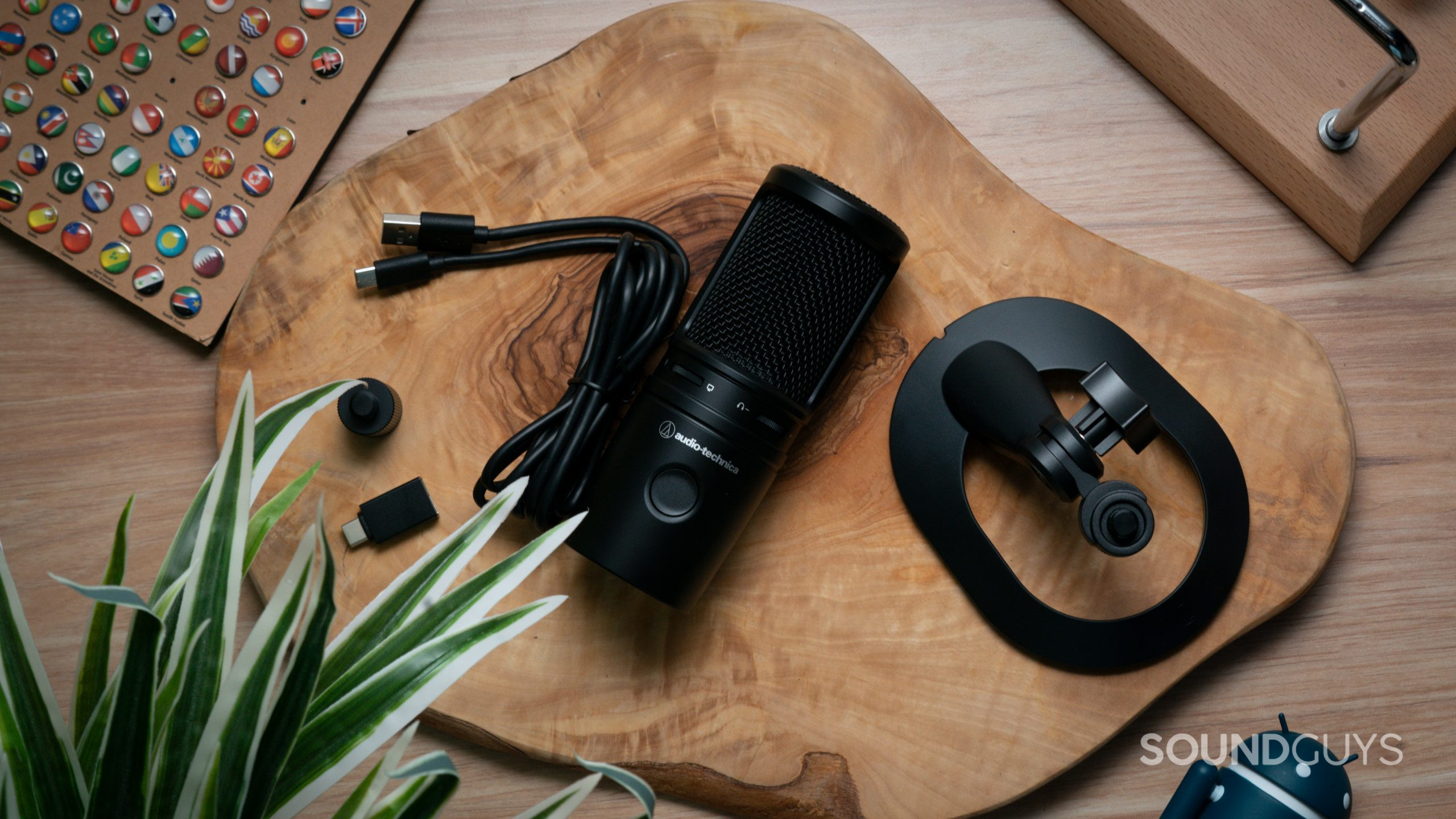
Like the original AT2020 and AT2020USB that this mic is based on, the AT2020USB-X generally delivers professional sound quality. It has a cardioid polar pickup pattern, meaning it’s optimized for capturing sounds directly in front of it. Although it’s clearly pitched towards capturing speech for podcasts or radio, the microphone is also useful for capturing some musical performances as well. The built-in analog-to-digital converter (ADC) is capable of a sampling rates up to 96 KHz at 24-bit resolution. The only real downside to the sound of the AT2020USB-X is the way that the highly sensitive condenser microphone design tends to pick up ambient noise quite well, although if you’re recording in a treated room or quiet space you shouldn’t have a problem.
The AT2020USB-X in an untreated office:
The AT2020USB-X in an untreated office with a loud keyboard next to it:
In the mic samples recorded from an untreated office, you can hear obvious hard clipping, which is an issue with USB mics that lack gain control before the ADC. You can tell that the audio quality improves when I back off from the mic in a quieter room that’s closer to a recording booth.
The AT2020USB-X in a quieter room:
The AT2020USB-X with editing and effects:
How does the microphone sound to you?
Should you buy the Audio-Technica AT2020USB-X?
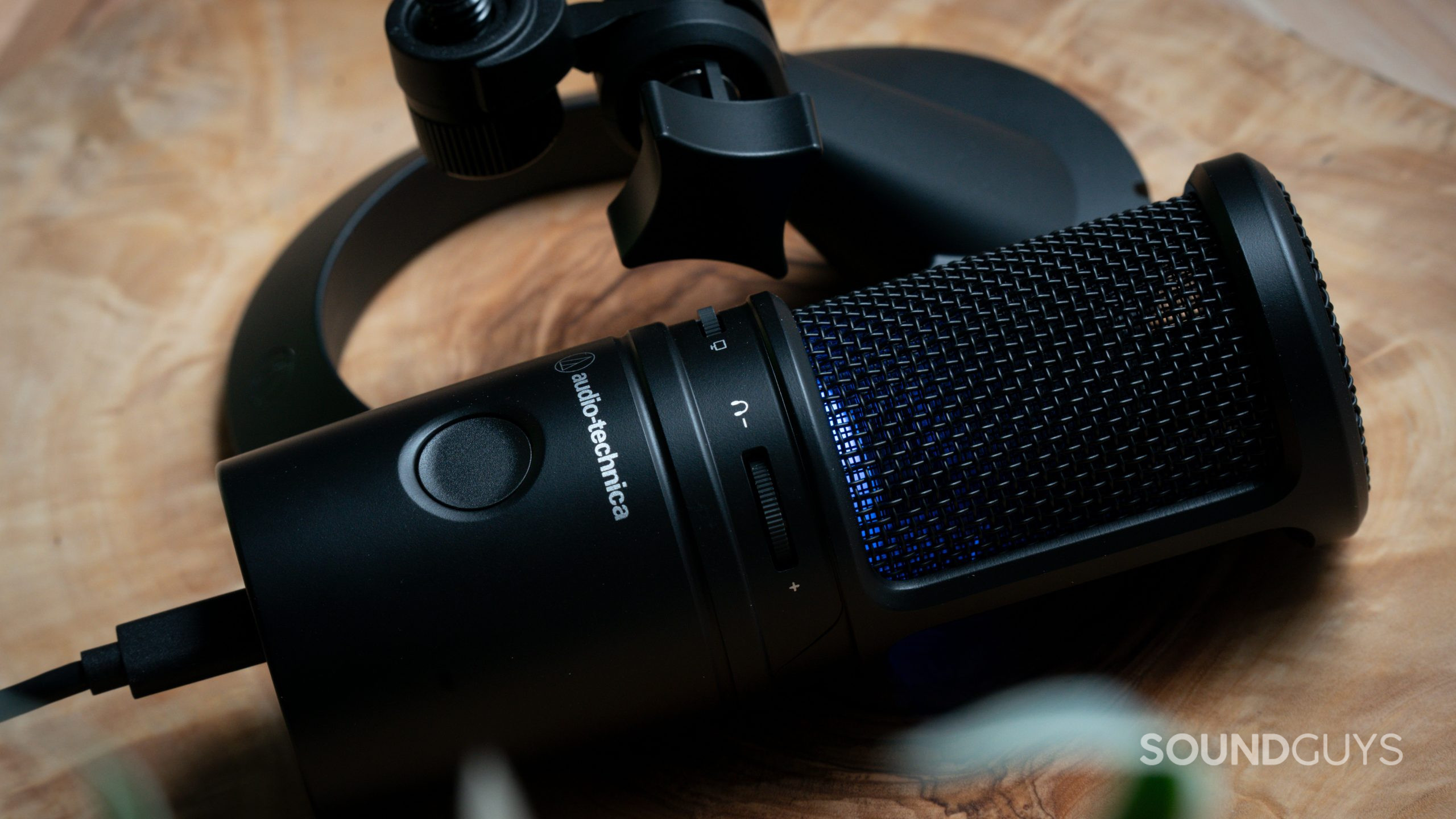
Despite its flaws, in general the AT2020USB-X is still a good choice for a high-quality USB microphone. If you’re looking for a microphone for work calls or Discord hangouts, this Audio-Technica mic might not be the right choice due to its sensitive nature. However, for anyone with a nice recording space, the AT2020USB-X is an excellent choice for voice work. The addition of a mute button, LED lighting, and a headphone jack, along with its associated controls make it more useful than the original AT2020. Altogether, this is a solid and well-built microphone that’s a smart option if you want to dip your toes into raising the quality of your recordings.

What should you get instead of the Audio-Technica AT2020USB-X?
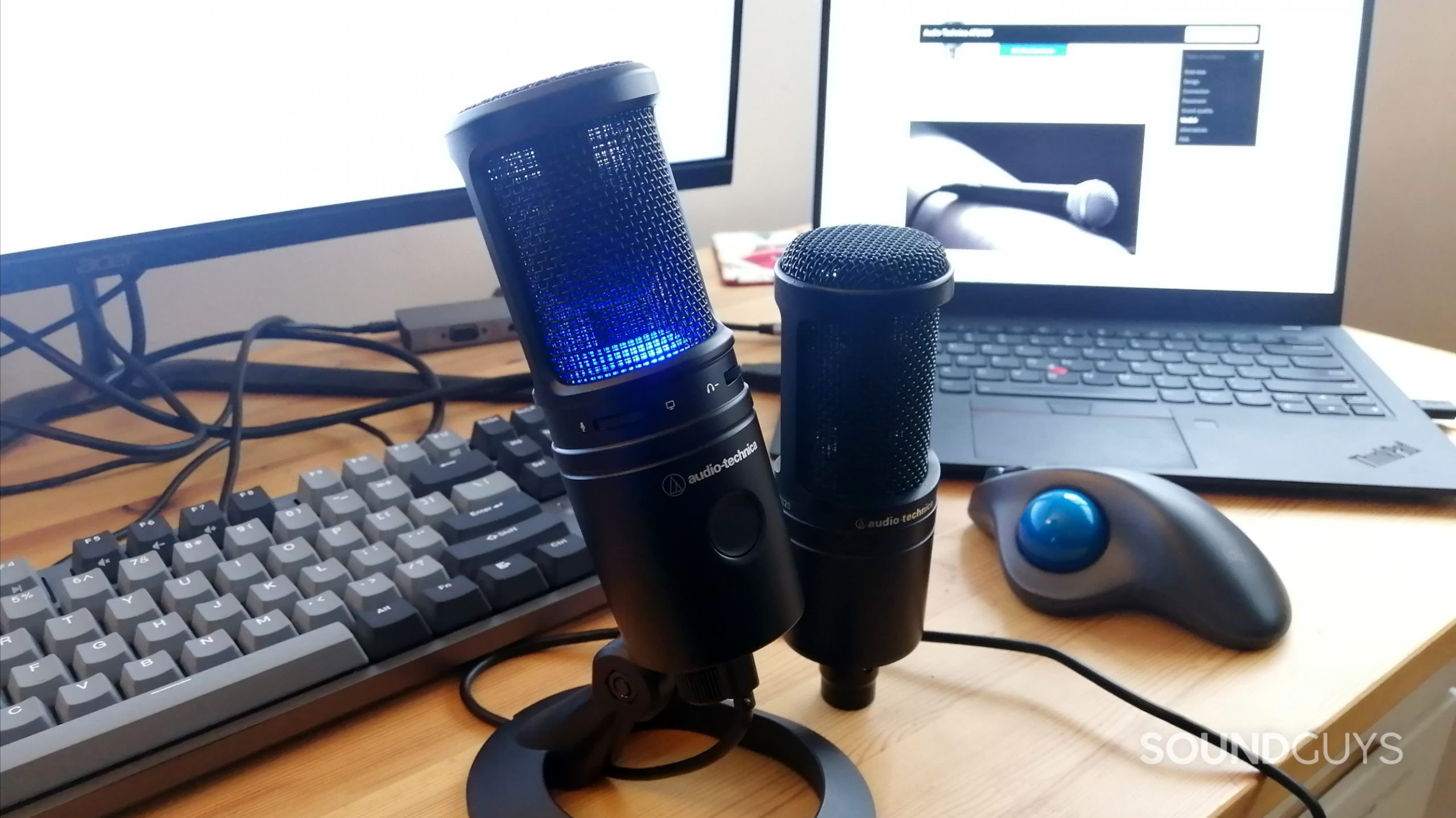
The old standby for USB microphones continues to be the Blue Yeti X, sitting at around $139 USD it delivers on quality and control with a solid pedigree. You get four recording patterns to choose from (stereo, omnidirectional, cardio, and bidirectional). We like that there’s not much to the Yeti X, but if that’s too simple, look into the Shure MV7. The MV7 is a more expensive option that’s inspired by the Shure SM7B XLR microphone, and allows recording from the USB and XLR outputs simultaneously. You also get good software support.
Users may also be interested in XLR-based microphones that require an external USB sound card to connect to their computer. In that case, the AT2020USB-X’s older sibling the AT2020 is a solid choice here.
Frequently asked questions about the Audio-Technica AT2020USB-X
Unlike some others in this category, the AT2020USB-X only has a cardioid pickup pattern. It’s more than adequate for most recording situations, but it does lack some of the options granted by other microphones.